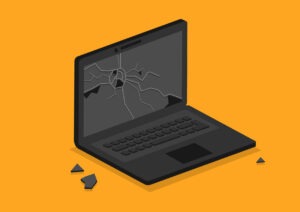
When car accidents occur, the aftermath can be devastating. Not only can there be life-altering injuries, but also a tremendous amount of property damage. This includes damages to your vehicle as well as to any other personal items you may have been carrying in your car at the time of the crash.
This broad category of property damage resulting from a crash offers plenty of room for compensation requests if adequate coverage is available. From repairing bumpers and replacing headlamps to replacing broken personal items or totaled vehicles, it is imperative that you understand what type of property damages you are eligible for.
A knowledgeable and persistent Indianapolis car accident lawyer can make all the difference when pursuing justice after property damages from an accident.
What Is a Property Damage Claim?
Claims for property damage, as opposed to bodily injury, are what the term “property damage” refers to. The major basis of the claim is damage to real property that necessitates compensation. Structures, personal items, and vehicles might be the subject of a property damage claim.
Vehicle collisions are a common source of property damage claims. Which party is pursued for compensation for losses depends on who was to blame in the incident, however, you can seek compensation from your own insurer if you have collision coverage.
The insurance company will only pay up to the policyholder’s limits, so any damages over that will have to be pursued directly from the negligent party. The single most critical aspect in determining the possibility of having a favorable conclusion to your claim is your ability to negotiate and interact with insurance companies, adjustors, and claims attorneys.
Basic Insurance Filing Information
If you have been in an accident and the other driver is found to be at fault, one step is to file a claim with their insurance company for the repair of your vehicle. A claim on their insurance policy can be made to cover any costs associated with repairing or replacing the damaged vehicle.
However, if you ultimately decide to go through your own insurance company instead, you need to make sure that your policy includes comprehensive or collision coverage in order to fully redeem what you lost.
On the other hand, if you have comprehensive or collision coverage on your own policy, you may want to go through your own insurance company to get your car fixed. You may be able to get your car fixed faster, and then your insurance company can pursue the other driver to recoup these costs.
Determining Vehicle Repair Costs
In order to determine the total cost of repairs, an insurance company will likely request that you drive your car to their repair shop so they can get an estimate of damages. They may also send an adjuster out to inspect your vehicle at its location if the damage appears significant enough.
During both scenarios, you must provide any necessary information that they request in order for them to make an accurate assessment of costs. You should not necessarily accept any estimates given but should obtain up to three estimates from different sources for comparison purposes.
Finally, even though insurance companies may have specific recommendations or preferences when it comes to repair shops, you ultimately retain the choice of where repairs are made and cannot be forced into selecting any particular shop.
How Is the Damage Valued?
When assessing damage to a vehicle, the insurance company will typically determine which assessment method is used. This decision is based on the estimated repair cost versus the car’s estimated value, as indicated in the Blue Book.
If the repairs are estimated to exceed 75% of that value, then the car is considered a total loss and subject to a salvage title. In this case, the insurance company will pay you only what they deem your car’s Blue Book value.
However, this also depends on certain circumstances, such as the age of the vehicle, collision history, and other factors that remain at the discretion of either party involved.
The insurer will consider several factors, including specialized knowledge from their appraisers or agents and any information that may have come up during inspections and other reviews. They will use all available data sources before deciding how best to approach assessing your car’s damages.
The Insurance Company
Most of us know that filing an insurance claim is necessary, but where to start can feel overwhelming. Navigating auto insurance policies and who’s responsible for what can be intimidating on top of everything else going on at the time.
Your auto insurance coverage will more than likely pay for the damage, but if the accident is not your fault, you can use your collision coverage with a deductible. Alternatively, you can make a direct claim against the other driver’s insurance company and notify your own in case a dispute arises later down the line.
Personal Property
If your personal property was damaged or destroyed during an auto accident, listing these losses on your car insurance claim is important. It might also help to keep any receipts or bills that might attest to the monetary value of the items lost.
The other motorist may be responsible for paying to fix or replace your damaged or lost property, depending on who was at fault and the specifics of your insurance coverage. You can improve your chances of getting compensation for losses incurred if you take the time to document your damages properly and include them in your insurance claim.
Many drivers keep their cars stocked with valuable items that can be significantly damaged or lost in even a minor fender-bender. Some examples of these items can include:
- Radios
- Cell phone
- Tablets
- Laptops
- Custom stereo systems
Remember, whatever possessions are destroyed because of another person’s negligence need to be replaced and rightfully compensated. A lawyer can help to ensure that you recover these damages and that you are not forced to take an undervalued settlement.
Contact an Auto Accident Lawyer in Indianapolis, Today for More Information
If you or a loved one have recently been injured in a car accident, you may feel overwhelmed and unsure where to start. Fortunately, the experienced team at Vaughan & Vaughan is here to help. Our personal injury attorneys can help evaluate your losses and may be able to help you with your claim.
Contact us today for a free case evaluation.



